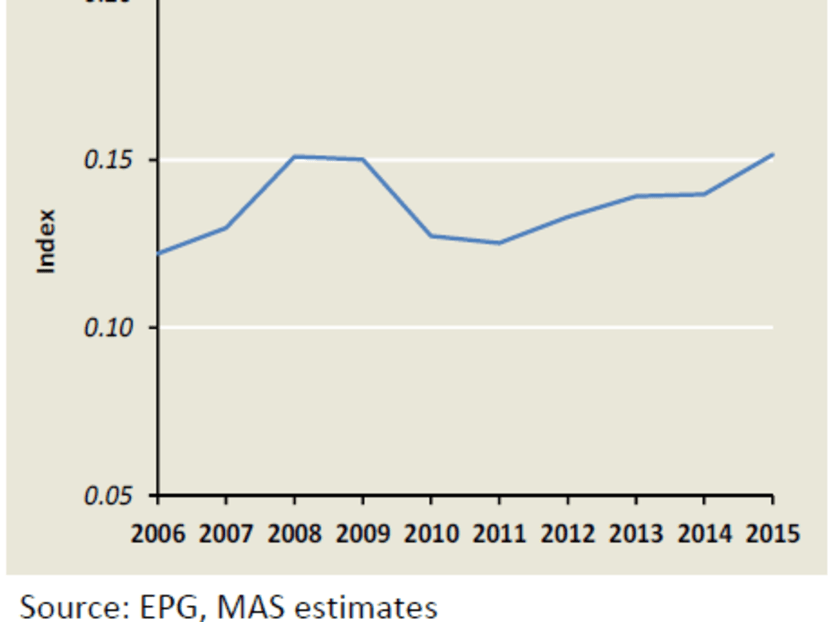Job-skills mismatch underlines need for retraining
The mismatch between jobs and skills has reached a level as bad as the 2008-2009 global financial crisis, underscoring persistent calls by government leaders for workers to go for retraining.

The Mismatch Index for Singapore measures labour market mismatches as the discrepancies between the share of job seekers and job openings across sub-markets. Source: EPG, MAS estimates
The mismatch between jobs and skills has reached a level as bad as the 2008-2009 global financial crisis, underscoring persistent calls by government leaders for workers to go for retraining.
In its Macroeconomic Review released yesterday, the Monetary Authority of Singapore published a chart showing that the mismatch in the domestic labour market has been trending upwards since 2012 and is currently hovering at the same level as that during the 2008-2009 recession. It is based on an index which measures the discrepancies between the share of job seekers and job openings across sub-markets.
Ms Selena Ling, head of treasury research and strategy at OCBC Bank, said: “The skills mismatch is a reflection of how fast manufacturing and others such as IT industries are facing technological changes. It is very unlike the past where you have a longer horizon for products and technology. These days, the product cycle is very short. So the company cycle, industry cycle from sunrise to sunset can be fairly fast as well.”
Last month, Manpower Minister Lim Swee Say warned that low jobs growth could persist and Singapore faces the prospect of rising unemployment if it does not minimise the job-skills mismatch and strive for quality economic growth. Labour chief Chan Chun Sing has also stressed the need to retrain and prepare workers who are at risk of being retrenched, so that they are equipped to take on new jobs.
In its report, the central bank said the initiatives put in place by the Government, such as the Professional Conversion Programmes and SkillsFuture Credits, will help ensure that workers’ skills remain relevant to the evolving needs of the economy, thus enhancing their employment prospects and career opportunities.
“Notably, workers should equip themselves with the necessary skills to fill the jobs that are currently available and will be in demand in the coming years. These include professionals in IT, engineering, and finance, as well as healthcare workers and early childhood educators. Increasingly, more specialised skills would be needed to take on these new jobs, such as capabilities in IT applications and cyber security analytics,” the MAS said. ANGELA TENG









